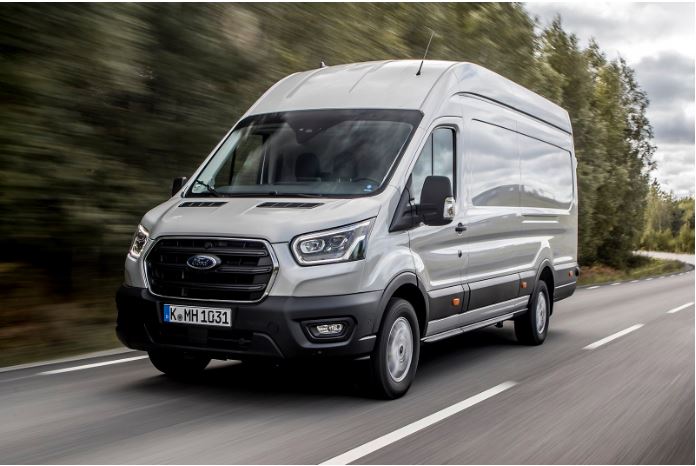On The Road Again - SMR Service Keeps Vehicles Moving
Europcar has released the first data on how a bespoke Service, Maintenance and Repair service is supporting its Europcar Van customers. The Europcar Mobility Group UK...
Read Full Article
What Car? Vans' research has revealed that 88% of all new vans fail to meet any of the proposed European safety standards.
Just one-in-10 new vans on sale today features automatic emergency braking, lane keep assist and reversing cameras - just some of the technologies which will have to be fitted to every new car and van from 2022, according to proposals by the European Commission.
What Car? Vans analysed every van derivative on sale in the UK and while many top of the range examples come fitted with multiple safety features as standard, lower specification models typically do without the potentially life-saving technologies.
The European Commission has proposed to make eight safety technologies mandatory across new cars and vans by 2022. These include driver drowsiness and distraction alerts, intelligent speed assistance, reversing cameras or sensors, data recorder in case of an accident, lane-keep assistance, advanced emergency braking and crash-test improved safety belts.
Only 12% of all new vans on sale have one of the eight mandatory safety technologies as standard, while only one in five vans come with at least one of the eight as an optional extra.
Automatic Emergency Braking
AEB, which automatically applies the brakes if it senses an imminent collision, is standard in one-in five of the 228 new vans and pick-ups on sale in the UK. Studies by Euro NCAP, the European vehicle safety standards agency, previously found AEB reduces real-world rear-end collisions by 38%.
Lane Keeping Assistance
Other technologies, including Lane Keeping Assistance, which automatically keeps vans on the centre of the lane, was available as standard in only 2% of all new vans on sale, and an optional extra in 18%.
Others
New technologies, including Intelligent Speed Assistance, which helps drivers to avoid exceeding the speed limit and automatically slows the vehicle down when the limit drops, is found in just 3% of new vans on sale, while crash-test improved seat-belts and accident data recorders are not fitted as standard to any van currently on sale in the UK.
Despite van drivers covering on average 13,000 miles a year, driver distraction and drowsiness alerts were standard on just one-in-10 vans on sale, and an optional extra in 11%.
Euro NCAP
In 2012, Euro NCAP tested some of Europe’s best-selling vans and called on manufacturers to offer these vehicles with higher levels of safety equipment after many of the models tested were found to lack basic safety equipment such as electronic stability control.
Van manufacturers have since made improvements to driver, passenger and pedestrian safety. In the latest Euro NCAP tests, for example, the Ford Transit achieved a five star rating.
Lots to do
Jim Holder, editorial director of What Car? Vans, said: “There are more than four million vans on the road today. Van drivers shouldn’t be waiting for legislation to come into force to have access to the latest safety tech as standard. Though the industry has made strides in recent years, it clearly still has a lot more work to do.”
This article and a load of van reviews can be found on www.whatcar.com/class/vans
Picture: Supplied by WhatCar? Vans with this article which originally ran on the publisher's website.
Article written by WhatCar? Writing Team | Published 27 November 2019
Europcar has released the first data on how a bespoke Service, Maintenance and Repair service is supporting its Europcar Van customers. The Europcar Mobility Group UK...
Read Full ArticleMotorists are snapping up low-emission vehicles (LEVs) before grants are cut and Parliamentary Committee has slammed the Government's commitment to electric...
Read Full ArticleNew research to mark Fire Door Safety Week reveals that a combination of a surge in lithium-ion battery fires from e-bikes and e-scooters, along with poor fire door...
Read Full ArticleA consortium of businesses has signed an open letter to urge the Mayor of London to rethink ending congestion charge exemption for electric vans. Currently, 100 per...
Read Full ArticleAmogy, a pioneer of emission-free, energy-dense ammonia power solutions, has announced the successful testing of the first-ever ammonia-powered, zero-emission semi-truck....
Read Full ArticleA new study from Juniper Research has found the number of hydrogen vehicles in service globally will exceed one million in 2027, from just over 60,000 in 2022...
Read Full ArticleThe UK’s Transportation and Storage sector is now the eighth-fastest growing sector in the country and the second-ranked sector for business growth in the past...
Read Full ArticleThe growing versatility of EV fleets and the imminent introduction of airborne variants are pushing infrastructure and technology to new limits. The UK automotive...
Read Full ArticleMatthew Lumsden, CEO of Connected Energy, answers some of the questions he is asked most often about the implication of installing EV chargers. In a new regular...
Read Full ArticleMitie, the UK’s leading facilities management company, has accelerated past its target to convert 30 per cent of its fleet to zero-emission electric vehicles...
Read Full Article